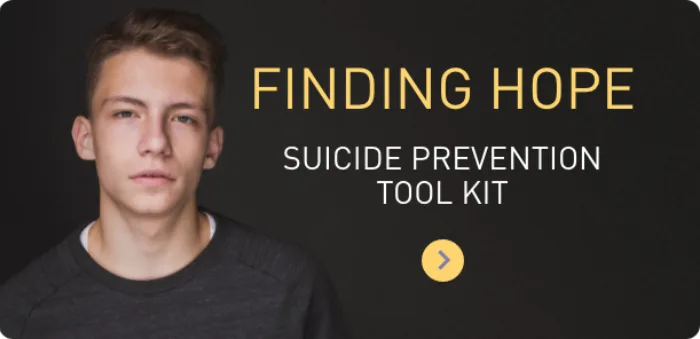Suicidal Thoughts
There is hope
About 123 Americans die by suicide each day, according to statistics reported by Suicide Awareness Voices of Education (SAVE). There is no common thread among those who die by suicide, other than their feelings of overwhelming despair. Oftentimes, suicide is caused by depression that’s compounded by other life circumstances—like physical illness, substance use, job loss, divorce or PTSD. The effect of these stressors can leave a person feeling like there is no hope.
But nothing could be further from the truth! For those willing to seek help and start the journey to better mental health, hope is always on the horizon.
Understanding suicidal thoughts
When you know a friend deeply, you can sense when something is wrong. Be watchful if someone you know is “going through deep waters,” seems depressed, or talks about having nothing to live for. These and other signs may indicate that your friend is considering ending their life.
IT’S NOT HURTING ANYBODY BUT ME
Suicide is cruel. For someone struggling with despair, mental health issues or heavy life challenges, suicide may seem like the only solution. It may even seem like a way to lift burdens from others. But instead, it only distributes pain more deeply and broadly, affecting everyone that person knows. It leaves parents, siblings, spouses and partners to deal with grief, guilt and unanswered questions.
WHAT IF THERE’S NO OTHER ANSWER?
Despite what it may seem, there is ALWAYS another answer. For the person contemplating suicide or making a plan, life’s circumstances have clouded their perspective to the point of believing that suicide is the only solution. A good friend will ask “Are you OK?”, keep digging when they get vague answers, and intervene by connecting loved ones to a counselor who can initiate treatment and bring them to better health.
HOW CAN I HELP?
The best help you can give is to be nosey when a friend says they are thinking about suicide. People can drop hints in lots of ways, so be sure to tune in and engage when a friend mentions having a weapon or planning an overdose. Dismiss thoughts that the behavior is attention-seeking and be quick to affirm that friend’s worth. Help is just a phone call away, and calling the National Suicide Prevention Hotline at 800-263-8255 is a good place to start.
Helping
a Loved One
A guide for family and friends
Finding
Hope
A toolkit for suicide prevention
Grief &
Coping
A brochure for survivors of suicide loss
Is that
true?
Suicide-attempt survivors bust myths about suicide
